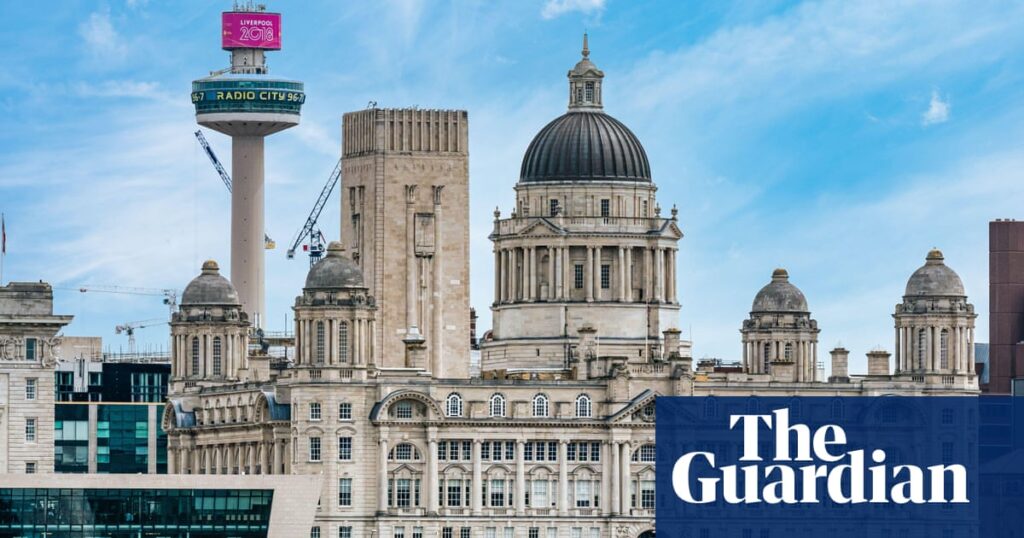It is known across Liverpool as the Radio City tower but that moniker may not be around much longer as the structure hosts its final live broadcast on Christmas Eve.
Microphone cables are being bundled up and heaving contacts books packed into boxes, leaving empty what is arguably the most famous building of the city’s skyline – St Johns Beacon, to use its proper name.
Built in 1969, originally as a luxury revolving restaurant that was one visited by Queen Elizabeth II, the tower was listed Grade II in 2020, with Historic England describing it as “embodying the technological bravura and spirit of the space age”.
Photograph: Trinity Mirror/Mirrorpix/Alamy
From the mid-80s it was mostly empty after it became apparent that a kitchen more than 100 metres in the air with two lift shafts and 558 stairs posed a fire hazard. In 2000 it was saved from dereliction when it become home to Radio City and emblazoned with the words “Radio City 96.7” large enough to be seen across Liverpool.
“It was great excitement when we actually moved to the tower,” said Molly Marshall, who effectively managed the station’s office in a number of different roles throughout the years. “A helicopter came flying around and took a picture of us all waving from the top of the tower.”
Every pop star who played the arena, Liverpool Empire, or filmed at Granada studios wanted to visit, she said, but there were “a lot of people you didn’t realise had a real fear of heights or a fear of lifts”.
“One of the guys in Westlife, I think it was Nicky, he wouldn’t step foot in the lift so we had to drop a microphone down to reception while the others were interviewed in the studio.”
The roads outside were often closed by police due to “thousands and thousands” of people waiting outside for pop stars, she said.
Pete Price, the veteran radio DJ who spent more than two decades broadcasting from the tower, described being live on air in 2008 when an earthquake hit, measuring 5.2 on the Richter scale.
“It was the most unbelievable experience ever. It was a good job I was in an eight-second delay, because my language was absolute choice. So I had to cut myself off,” he said. “We just ran for our lives but we didn’t know where we were running.”
Price said the tower would sway as much as seven inches (18cm) in the wind, which meant “you would actually see the blinds move and your seat on wheels would move as well, it’s scary”.
During a 50-year broadcasting career, Price broke the story that Michael Jackson had died, beating the BBC and other news outlets, from the tower.
On another occasion, the phone lines were blown as 19,000 people in one hour tried to get through to speak to a psychic, he said.
Radio City was rebranded earlier this year, in order to consolidate Bauer’s brands, to Hits Radio Liverpool, and the decision was taken to move to a new office at ground level.
Radio City’s viewing gallery, which “most of Merseyside have been in” and seen panoramic views of the city, is open until the end of December, after which the future is uncertain. Ideas have been put forward but nothing settled on: in 2020, a plan to build a zip wire between the tower and the central library was eventually vetoed by the then mayor, Joe Anderson.
“I think to everybody it will always remain the Radio City tower, whatever it becomes,” said Marshall, who organised a 50th birthday party for Radio City in October with Carolyn Hughes, who worked as the founder’s PA and then in public relations for the station. Hughes said that on the last show at the tower she would “raise a glass to the memories”.
She added: “Better to have loved and lost than never loved at all, I guess … Rest easy Radio City, you can stand down now knowing you put a great shift in.”

